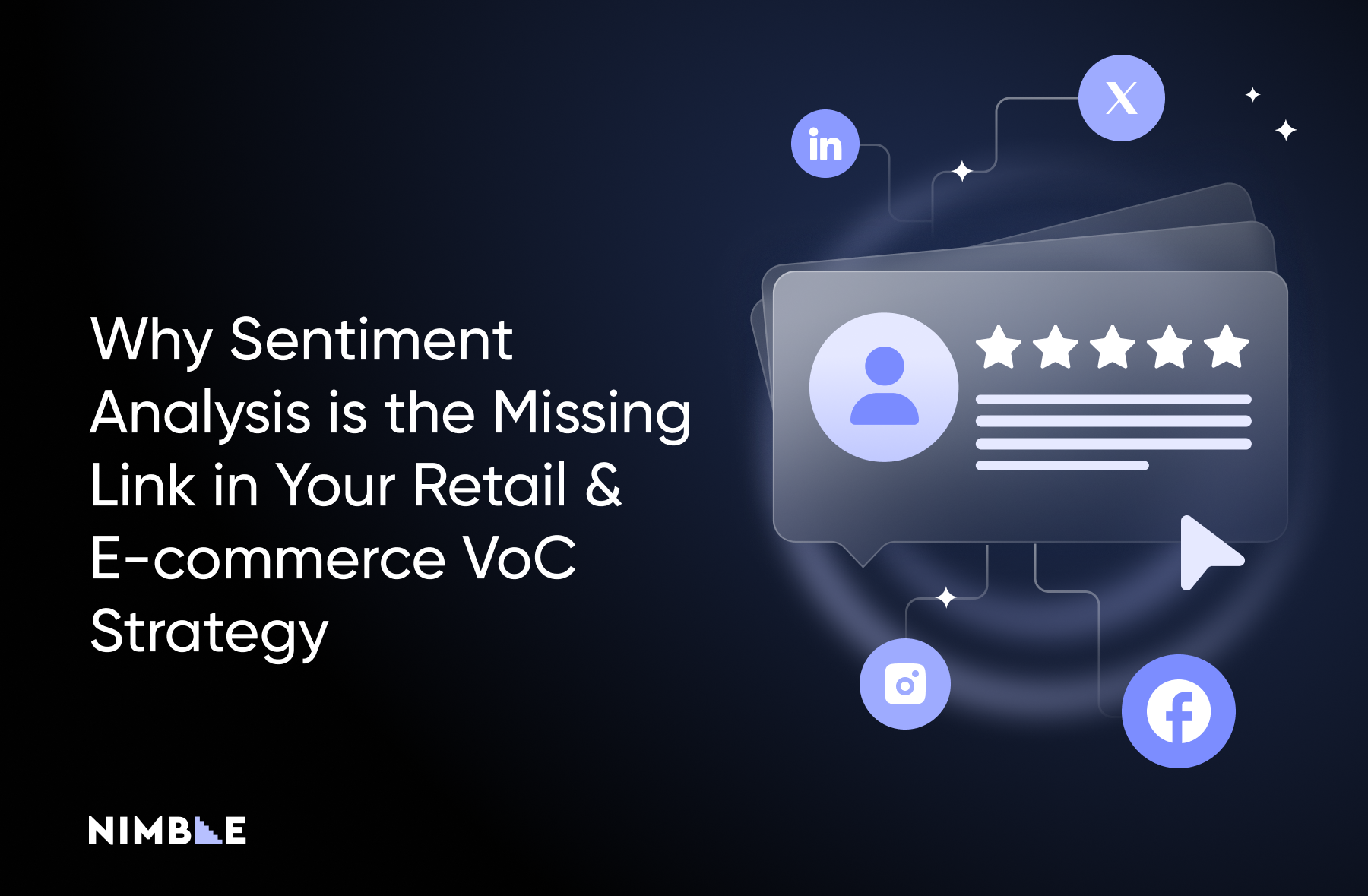How Real-Time Data & AI Can Reduce Returns & Boost Efficiency in the Online Auto Parts Industry
Learn how integrating real-time data to make dynamic catalogs can solve many problems plaguing online auto parts retailers.


Key Takeaways
- Recognize the limitations of using static data to manage catalogs and online auto parts industry operations.
- Discover how integrating real-time online data pipelines, AI, and machine learning applications can boost sales, efficiency, and customer sentiment for car parts retailers.
- Learn from an anonymized case study of an online auto parts company that transformed its operations using real-time data.
- Discover strategies for integrating new data technologies into your automotive e-commerce business.
The online auto parts industry is constantly changing, making speed and accuracy essential to performing well and standing out amongst competitors. As vehicle models evolve and new parts are released, the traditional reliance on static product catalogs is no longer sufficient. Cars simply need too many parts, with new ones getting introduced and old ones becoming obsolete faster than ever. The outdated approach of using static product catalogs hampers customer satisfaction and sales growth, leaving car parts retailers lagging behind.
Fortunately, there’s a solution. Today, real-time data integration combined with AI optimization can create dynamic, self-updating product catalogs that keep up with market demands, ensuring businesses stay competitive and customers get what they need.
The Pitfalls of Relying on Static Data as an Auto Parts Retailer
Relying on static data for product catalogs worked well in the past—But in the increasingly fast-paced and globalized world of auto parts, it’s now become a significant roadblock to success. The following are some of the biggest reasons static data no longer works for the online auto parts industry.
Obsolescence
Over the past several decades, car manufacturers have been rolling out a more extensive variety of models that are updated more frequently than ever and rely on increasingly complex parts like electronic systems and computers. This means new parts are constantly being introduced to meet the demands of modern vehicles.
With new parts constantly being introduced to meet the demands of modern vehicles, retailers that rely on static catalogs risk offering outdated or irrelevant parts. It can even cause inaccurate product listings that provide incorrect information about a part’s compatibility with specific models. This can lead to customer confusion and dissatisfaction, reducing brand credibility and hurting sales.
Missed Opportunities
In the world of e-commerce, speed is critical. A static system often means delayed updates, which could cause businesses to miss crucial sales opportunities. By the time a manual update is processed, competitors with more agile, real-time systems may have already capitalized on customer demand.
This results in lost sales and reduces the likelihood of repeat business as frustrated customers look elsewhere for a faster, more reliable buying experience. Additionally, the inability to quickly respond to market trends means retailers miss out on upselling or cross-selling opportunities, which could significantly hurt their revenue.
Inefficiency
Maintaining an extensive, static parts database is both costly and labor-intensive. The time and resources required to manually update product information, ensure accuracy, and stay on top of new releases eat into a business’s operational efficiency. Instead of focusing on more strategic growth initiatives, teams are tied up in managing outdated systems. This slows the entire operation and limits the company’s ability to innovate, improve the customer experience, or focus on expanding product offerings.
This problem gets compounded as the catalog grows and becomes more complex. The larger the catalog, the more internal resources are strained by maintaining it, leading to errors and wasted bandwidth that can damage customer satisfaction and operational workflows.
How Real-Time Data Systems Solve These Problems & Boost Business Performance
New technologies in real-time data integration and AI, like Nimble’s data platform, offer a game-changing solution to the inefficiencies of static data that allow car parts retailers to operate with greater accuracy, speed, and customer satisfaction.
Here are some of the benefits integrating real-time data solutions can provide for online auto parts retailers.
Immediate Real-Time Product Catalog Updates
Real-time data ensures that your product listings are always accurate and up-to-date, allowing you to reflect the latest vehicle models and parts availability as new information and products become available. This eliminates the guesswork for customers and allows your business to offer the latest parts and information before competitors.
By providing instant updates on stock availability, pricing, and compatibility, you reduce the chances of order cancellations and backorders and improve the overall buying experience. As a result, customers are more likely to confidently complete their purchases, which can lead to increased conversions, fewer returns, and higher brand loyalty.
Enhance Performance of AI-Driven Tools
Real-time data dramatically improves the effectiveness of AI-driven tools like recommendation engines, compatibility checkers, and predictive analytics. It can drive more precise recommendations by using the most up-to-date information to match the right parts to the right vehicle, reducing errors in compatibility and recommendations for out-of-stock items.
For instance, if a customer is shopping for parts based on their specific car make, model, and year, AI can instantly verify which components will fit and suggest related products currently in stock. Real-time data also enables AI systems to learn and adapt quickly to refine recommendations based on the latest buying patterns and vehicle updates. This reduces frustrations from incorrect purchases, strengthens customer trust, and enhances the overall customer experience.
Boost Revenue & Customer Loyalty With Better Personalization
Real-time data allows retailers to personalize their offerings based on customer behavior and vehicle history, boosting sales and customer interest. For example, if a customer frequently buys parts for a specific vehicle, you can offer targeted promotions or discounts on related items, such as accessories or maintenance products.
Predictive maintenance is another area where real-time data shines—by analyzing patterns in vehicle performance, retailers can suggest parts or services the customer may need in the future, turning one-time buyers into repeat customers. Real-time data can be used to offer time-sensitive deals, such as flash sales on parts that are low in stock or seasonal discounts for specific components, creating urgency and driving more sales.
Anonymized Case Study: An Online Auto Parts Retailer
Retailer B is a leading online retailer of aftermarket car parts. Due to its catalog's sheer size and complexity, Retailer B struggled with keeping its parts listings accurate and updated, leading to operational inefficiencies and frustrated customers. They lost sales to competitors due to their lack of personalized offers for customers. Here’s a brief overview of how integrating real-time data from Nimble solved these issues.
Challenges Faced
- A high rate of product returns due to incorrect part compatibility.
- Difficulty adapting to new car models quickly enough to meet market demand.
- Negative customer reviews that were damaging the brand's reputation.
Solution Implemented
To tackle the challenges of outdated product listings, Retailer B integrated real-time vehicle and parts data using Nimble's advanced data platform. This integration allowed the retailer to create a dynamic catalog that updated automatically as new car models were introduced or existing parts changed. By ensuring customers always had access to the most current and accurate information, Retailer B significantly reduced confusion and frustration, leading to a more satisfying shopping experience.
Retailer B also utilized Nimble’s online data scraping technology to collect real-time advanced data on competitor websites, customer reviews, and customer purchase history. Using this foundation of real-time data, Retailer B implemented AI-powered compatibility verification, which allowed the system to cross-reference customer vehicle details with the extensive parts catalog instantly. This capability drastically reduced the number of incorrect part purchases, addressing Retailer B's high return rates due to compatibility issues. Automating this verification process freed up staff to focus on strategic initiatives rather than manual checks, streamlining operations across the board.
Using real-time data on customer shopping behavior and preferences, retailer B also implemented personalized recommendations that could suggest compatible and related products tailored to individual customers. This drastically enhanced the shopping experience and transformed customer engagement, leading to more repeat business, better reviews, and increased brand loyalty.
Outcomes Achieved
- A 40% reduction in product returns.
- A 20% increase in sales driven by improved customer trust.
- Enhanced customer loyalty, with repeat purchase rates increasing by 15%.
Best Practices for Integrating Real-Time Data into Online Auto Parts Retail Businesses
Wondering how your online auto parts business can integrate real-time data and AI to see similar results? Here are a few steps you can take.
1. Update Product Catalogs Frequently
Automating catalog updates with real-time data feeds ensures accuracy and relevance. Your customers will always find the correct, up-to-date parts.
2. Implement AI-Powered Compatibility Checks
AI can ensure that customers only see parts compatible with their vehicle, reducing the risk of returns and enhancing their experience.
3. Enhance User Experience
Real-time data enables personalized recommendations, helping you offer the right product to the right customer at the right time.
4. Foster Data Partnerships
Establish partnerships with manufacturers to receive direct data feeds. This ensures your listings reflect the latest parts and information.
The Benefits of Maximizing AI and Machine Learning With Real-Time Data
When real-time data is integrated with AI and machine learning, the potential benefits multiply. Here are some improvements you could expect when you properly make the most of combining real-time Data with AI.
Improved Accuracy
With constantly updated data, your search algorithms and recommendation engines provide more accurate results. Customers find exactly what they need the first time.
Better Customer Personalization
Real-time data enables targeted marketing based on vehicle ownership, purchase history, and other behavioral factors. This level of personalization can increase sales and foster customer loyalty.
Enhanced Operational Efficiency
AI, powered by up-to-date data, can streamline inventory management, providing predictive insights into which parts will be in demand reducing overstock and stockouts.
How Data Will Transform the Future of the Auto Parts Industry
Integrating real-time data is not just a short-term fix—it’s the future of the auto parts industry. Here’s a glimpse of what’s to come:
Transformation Across Use Cases
Real-time data won’t just be limited to managing online catalogs—It will also enable services like predictive maintenance alerts, notifying customers when they may need a replacement part before they even realize it.
Innovation Opportunities
Imagine using augmented reality (AR) to help customers visualize how a part fits into their car. Real-time data and AI will make these innovations possible, taking customer experience to new heights.
Nimble’s Vision
At Nimble, we’re committed to driving innovation in the automotive e-commerce space, helping businesses harness the power of real-time data to stay ahead of the competition.
Conclusion
Real-time data and AI integration offer undeniable advantages to online car parts retailers, from reducing returns to boosting customer satisfaction and efficiency. By keeping product catalogs current, utilizing AI for compatibility checks, and improving customer personalization, businesses can stay competitive in an ever-changing market.
If you haven’t yet begun integrating advanced data technologies into your business strategy, now’s the time to start—using real-time data and AI to boost performance in all areas of your business is the future, and it could be the key to unlocking your company’s full potential.
Are you ready to transform your auto parts business with real-time data? Contact us today to learn how Nimble can help you streamline operations and boost customer satisfaction.
Get in Touch With Us To See How Data Can Revolutionize Your Business’s Performance
FAQ
Answers to frequently asked questions















